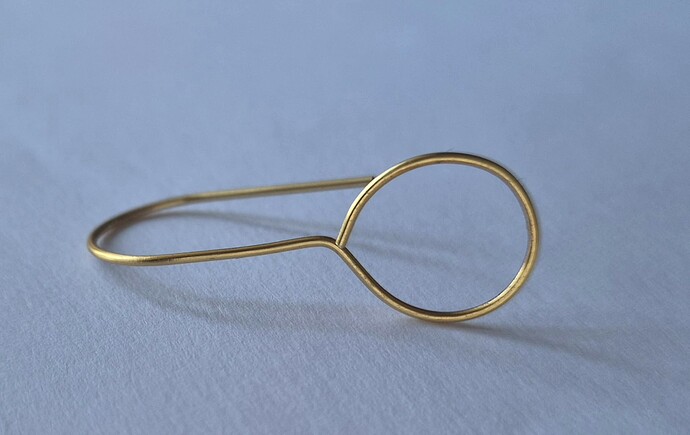Hi there!
I’m new to the forum and to jewellery making (started about a year ago).
I had a question about gold-filled earring wires and was hoping for some advice (thank you so much in advance!).
The design I’m looking to use (picture attached) has a larger loop design, using 20 gauge gold-filled wire.
I’m concerned that once I have hardened the wires, it stills leave a weak point at the join. I wondered if anyone else had used a design like this and whether they have encountered issues with it? I plan to sell these with brass designs as drops, so want to make these as robust as possible.
I know that there can be issues overheating gold-filled, which can irreversibly damage the wires, so was hesitant about soldering the wires closed. I work with silver and solder the same design for these ones, which I’m much more comfortable with. I’d love to use this design for brass too.
My thoughts were that I might have to switch out to solid gold wires and then solder these as the best way forward? I have yet to work with gold / gold solder, so am nervous to try (particularly without guidance given gold price)!
Any advice as to a recommended strategy is very gratefully received. Thanks again!
Best wishes
